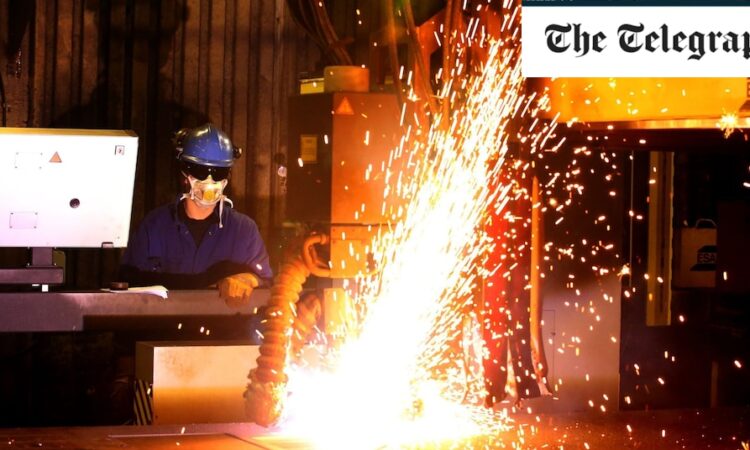
It is the latest sign that Labour’s plan to make the electricity grid carbon-free by 2030 will raise significant challenges.
The letters also warn that current skills shortages will hold back a host of other manufacturing sectors as well.
The signatories include Make UK, the Confederation of British Metalformers, TechUK, the British Coatings Federation and the Food and Drink Federation.
Stephen Phipson, chief executive of Make UK, warned that the recruitment issue at factories posed a particular barrier to Sir Keir’s mission to expedite the roll-out of green energy.
He told The Telegraph: “The net zero transition relies on basic engineering skills – you need technicians to fix the robots that make EVs, you need toolmakers to make the tools that make wind turbines, small modular reactors and carbon capture.
“But what we’re seeing in the country at the moment is a gradual erosion of those skills.
“The Government needs to get a grip.
“This is about the army of basic skills you need – on top of all the clever engineering design and artificial intelligence stuff – without which these things simply cannot happen.”
There are currently around 70,000 vacancies in manufacturing, costing the UK economy billions of pounds in lost output, according to Make UK.
While the industry is also having to compete with other sectors for talent, at least one-third of the roles are also hard to fill because they require skilled workers.
Ideally apprenticeships would help to plug these gaps.
But the number of people entering manufacturing apprenticeships since 2016 has plunged from about 79,000 per year to 46,000 – a drop of 41pc.
Make UK has blamed a lack of proper funding for level 2 and 3 apprenticeships in manufacturing and engineering roles, leaving colleges that want to offer them short-changed.
While the true cost of a three-year training course is estimated to be around £36,000, providers only receive £26,000 from the Institute for Apprenticeships and Technical Education, a government-funded body.
At the same time, Make UK says the scope of apprenticeship funding has broadened in recent years to include cheaper courses at workplaces such as estate agents and hairdressers.
This means many colleges now opt to offer these instead of more expensive manufacturing schemes, which require specialist equipment.
Cash for apprenticeships comes from a pot funded by the “apprenticeship levy”, a tax on companies with annual pay bills of more than £3m introduced by former chancellor George Osborne.






